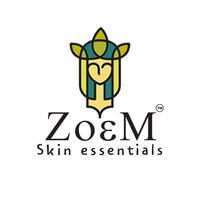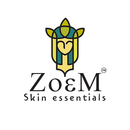Rosehip Oil Benefits for Skin
The skin is a multi-layer structure composed of an epidermis (horny, granular, prickle, and basal cell layers) and a dermis (papillary and reticular layers). Many kinds of cells (e.g., keratinocytes, fibroblasts, macrophages, and mast cells) and appendages (e.g., hair follicles, sebaceous glands, sweat glands, and nails) are contained within these two layers.

Plant-based oils are ideal as carriers because the molecules in plant-based oils are tiny enough to penetrate the skin. This is the direct opposite of mineral-based oils which have annoyingly large molecules - too big to penetrate the skin. Mineral oil molecules basically just sit around on top of the skin, clogging the pores until the poor old things can't handle any more and enlarge, resulting in visibly larger pores and sagging skin.
They are presented as safe and inert components, mainly used for formulation purposes. It is confirmed that natural oils can affect the skin penetration of various substances. Fatty acids are mainly responsible for this effect.
One such wonder plant oil is Rosehip oil. Let us try to learn more about it.
Botanical name
Rosa moschata OR Rosa rubiginosa seed oil OR Rosa eglanteria
What is Rosehip oil ?
Rosehip oil is a thin, highly penetrating, fast absorbing, luxurious, rich in Vitamin C, pale yellow color oil with a characteristic odour, extracted from the seeds of rosehip fruit- either by cold pressing the fruit or by using an organic solvent -mainly hexane, diethyl ether, ethylic ether and petroleum ether.
Rosehip oil benefits for skin
Rosehip is considered to be an important source of dietary fiber and nutrients (vitamin C), flavonoids and carotenoid pigments. It is also an important natural source of unsaturated fatty acids, which may attenuate ageing and regenerate human skin, diminishing expression lines, eliminating grooves and improving the appearance of scars (Pareja & Kehl, 1990).
Most known for its cell-regeneration ability , rosehip oil contains lycopene, beta-carotene, and rubixanthin. It is anti-inflammatory , anti-fungal and anti-bacterial in nature and is highly efficient in reducing scars- even the ones as old as 20-30 years, can be reduced by consistently using rosehip oil for a period of 16-20 weeks. Rosehip oil is also found effective in treatment of psoriasis, clearing deep keloid scars/ accident marks and the stubborn post acne marks.
Rosehip oil and wound healing
The process of wound healing involves many kinds of molecules, multiple biological pathways, and cross-talk between many cell types. Multiple factors can affect the outcome of wound healing or lead to impaired wound healing, including medications, infection, age, gender, oxygenation, sex hormones, stress, ischemia, diabetes, obesity, nutrition, and so on.
Given the fact that the availability of drugs capable of stimulating the process of wound repair is still limited, and all the existing anti-scar therapies (e.g., laser therapy, compression therapy, and massage therapy) have their inherent defects, it is imperative to or discover new resources or develop new drugs/therapies that effectively facilitate wound healing and improve scars. Natural drugs are widely used in the treatment of diseases, and their efficacy has been universally accepted. A number of herbal medicines have shown excellent curative effects for skin injuries.

In several studies (Institute of Resource Biology and Biotechnology, College of Life Science and Technology, Huazhong University of Science and Technology, Wuhan, China & Key Laboratory of Molecular Biophysics of the Ministry of Education, College of Life Science and Technology and Center for Human Genome Research, Huazhong University of Science and Technology, Wuhan, China), Hematoxylin and eosin staining were used to assess the pathological changes of sections, and Sirius-red staining was performed to analyze the ratio of collagen I/III in wound tissues. Immunohistological staining for CD68, CCR7 (CD197), CD163, TGF-β1, and α-SMA was applied to determine the macrophage phenotypes transition (M1-to-M2) and demonstrate the scar-improving efficacy of rosehip oil on wound healing. Results showed that rosehip oil significantly promoted wound healing and effectively improved scars. This efficacy might be exerted by accelerating the macrophage phenotypes transition and inhibiting the process of epithelial-mesenchymal transition.
Wounds treated with RO heal rapidly and show lower infiltration of inflammatory cells, enhanced proliferation of fibroblasts, collagenation, angiogenesis, and better collagen remodeling (basket weave meshwork of collagen). Thus providing strong support for the effective healing activity and scar-improving efficacy of Rosehip.
How to use rosehip oil for skin?
Rosehip oil is a fast absorbing oil and works beautifully for skin care as well as hair care. With its quick spreadability on the skin, it makes an ideal massage oil as well as a moisturizer in creams, lotions and bar soaps.
When blended with hemp seed oil, it can help balance sebum production.
When blended with macadamia oil, it can help in a nourishing hair mask.
Rosehip has been shown to improve skin hydration and is frequently used in anti-ageing and antioxidant products (Michalun & Michalun, 2010).Precautions and must know rosehip oil side effects
It can increase acne if used in higher concentration.
It is very susceptible to oxidative rancidity reactions.
For formulators, rosehip oil is heat sensitive and must be used only below 40C.

Happy Skin!
Vibhuti


Leave a comment